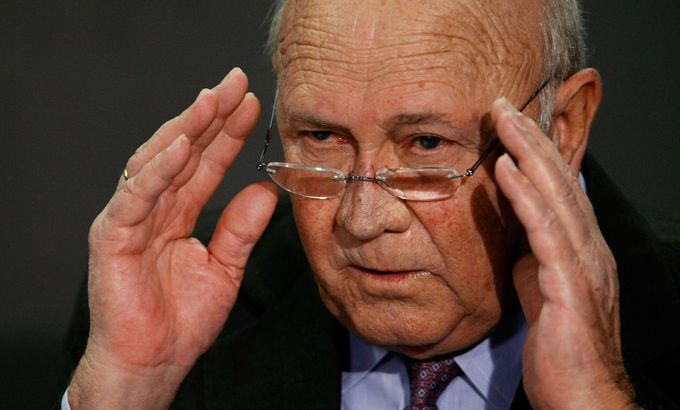
FW de Klerk on what new Arab democracies can learn from S Africa
Has South Africa lost touch with Mandela’s legacy and can new Arab democracies learn from the South African experience?
South African youth leader Julius Malema is facing disciplinary action and possible suspension by his party, which could be decisive in the future of both the country and the African continent’s oldest revolutionary movement, the African National Congress (ANC).
Recently listed among Forbes magazine’s most influential African voices, the powerful Malema, an open admirer of the policies of Zimbabwe’s Robert Mugabe, has chilled investor confidence in the largely impoverished nation by calling for the expropriation of white-owned land and the nationalisation of mines and resources.
As people in North Africa and the Middle East continue to challenge decades of oppressive rule, Malema presents a counter-revolutionary challenge to the ANC – directly threatening the leadership of President Jacob Zuma and accusing the so-called party of freedom of failing to uplift the lives of ordinary South Africans 17 years after majority rule.
In January, the ANC will celebrate its centenary, but bitter internal struggles could now divide the party that Nelson Mandela led in the dismantling of apartheid and the largely peaceful transition to democracy.
Nelson Mandela did not act alone.
South Africa’s last white president, FW de Klerk, talks to Al Jazeera’s Jonah Hull about what new Arab democracies can learn from South Africa’s transition and why things seem to be going wrong in a country, he claims, has lost touch with Mandela’s legacy.